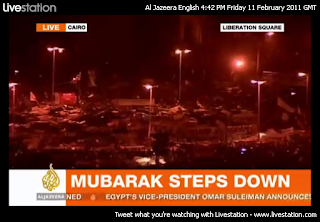As dictators across the Middle East open fire on nonviolent citizen protesters, the US  remains on the sidelines. Bahrain, Algeria, and Libya have clamped down on media coverage, making these uprisings are much less visible to everyday Americans than the Egyptian uprising, which garnered 24/7 news coverage during its peak.
remains on the sidelines. Bahrain, Algeria, and Libya have clamped down on media coverage, making these uprisings are much less visible to everyday Americans than the Egyptian uprising, which garnered 24/7 news coverage during its peak.
Protesters putting their lives on the line should not feel abandoned. While they are indigenous, capable movements, they are at the mercy of their police and military establishments. In Bahrain and especially Libya, the relative “restraint” shown by Egypt appear to have been abandoned. The message learned from Egypt: crack down hard and early, before protests become too large.
I hope the Obama administration is not intimidated by the importance of the 5th Fleet’s home in Bahrain. No amount of blood is worth a naval base, even one that serves to pressure Iran and safeguard important oil shipping lanes in the Persian Gulf. The US should make it clear that we stand up for the rights of all who desire freedom, even those with the unfortunate bad luck of living where we have placed an important naval base.
Freedom is for all, not just a chosen few.









